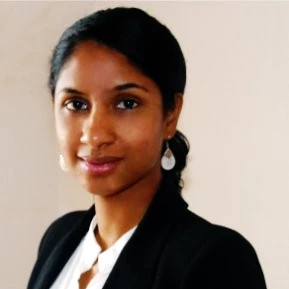 Adolescent pregnancy and child marriage in Sierra Leone are among the highest globally and has an impact on education outcomes
Adolescent pregnancy and child marriage in Sierra Leone are among the highest globally and has an impact on education outcomes
Saodatu didn’t go back to school after the Ebola outbreak. She was pregnant. At the time, government had imposed a ban prohibiting visibly pregnant girls from attending school or sitting for examinations. Some girls tried to hide it, but sooner or later, their pregnancy grew, and their dreams shattered. Saodatu was not alone. During the Ebola crisis, thousands of girls were left particularly vulnerable due to school closures. There were increases in unwanted sex,transactional sex for food and other essentials, which saw more than 18,000 girls fall pregnant. Further, adolescent pregnancy and child marriage in Sierra Leone are among the highest globally (31% of women ages 20–24 years had given birth by the age of 18 while 3% before the age of 15).
The human capital situation in Sierra Leone is challenging and this has been further complicated by the COVID-19 pandemic. While the magnitude of the COVID-19 crisis is unprecedented, Sierra Leoneans, having gone through the Ebola pandemic, know the setbacks that restrictions on economic activities and lost educational opportunities would inflict on citizens, especially on the young generation. The Ebola crisis hit West Africa in 2014–2015 and resulted in the loss of lives of more than 3,800 people, the infection of around 12,000 people, leaving tens of thousands of children orphaned. In Sierra Leone, schools were closed for eight months. Research on the effect of the Ebola pandemic shows that thousands of girls were left vulnerable and disenfranchised from mainstream education. In March 2020, the government took a major step towards keeping girls in schools and inclusive education. Sierra Leone’s Minister of Basic and Senior Secondary Education, Dr. David Sengeh, announced that the government’s decision preventing pregnant girls from attending school and sitting exams was overturned with immediate effect.
For Sengeh, Overturning the ban was the first step in building a radically inclusive Sierra Leone where all children – regardless of class, ethnicity, tribe, disability, location, gender, reproductive or parenting status – are able to live and learn in safety and dignity. The new policy of inclusion would apply to all learners, while the government would also engage communities to prevent teenage pregnancies.
Through a recently approved IDA grant, the World Bank is providing a further US$50 million to support improvements in the management of the education system, teaching practices, and learning conditions in Sierra Leone. The project will help advance girls’ empowerment and strengthen legal and policy frameworks that promote inclusion of all children in Sierra Leone. Additionally, it will support the Government to strengthen pathways for girls to re-enter formal education after giving birth. It will as well help the Government integrate comprehensive sexual education into the school curricula and develop a framework for a mentoring program for both boys and girls. These efforts will play a crucial role as school closures due to the COVID-19 crisis is likely to impact teenage fertility rates yet again.
Sierra Leone is determined to come out of COVID-19 ensuring that all children, regardless of gender, ethnicity, tribe, disability, location, economic, reproductive or parenting status are in school and receiving quality education to benefit the future of their beautiful country.



Join the Conversation